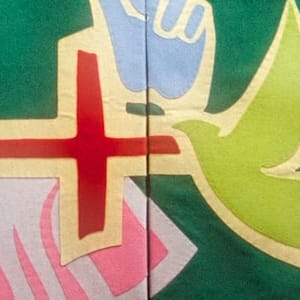cross the line: Idiom Meaning and Origin
What does ‘cross the line’ mean?
The idiom cross the line means to behave in a way that is unacceptable or goes beyond what is considered appropriate or reasonable.

Idiom Explorer
The idiom "lay on the line" means to take a risk or be open and honest about something, often exposing oneself to potential danger, criticism, or negative consequences.
The idiom "in line" means being in a position or sequence, typically waiting for something or following rules or instructions.
The idiom "go too far" means to exceed the limits or boundaries of what is acceptable or reasonable.
The idiom "go so far as" means to do or say something extreme or extreme action, often implying that it is beyond what is expected or necessary.
The idiom "go rogue" means to act in a rebellious and unpredictable manner, disregarding rules or expectations. It refers to someone who goes against the established norms or authority, often causing disruption or chaos.
The idiom "go overboard" means to go to great or excessive lengths, often beyond what is necessary or reasonable. It implies an extreme or exaggerated action or behavior, often resulting from enthusiasm or excitement.
The idiom "go down the wrong way" means to do or say something that is inappropriate, offensive or causes discomfort to others.
The idiom "go against the grain" means to act or think in a way that is contrary to what is expected or to the usual pattern. It suggests going against the established norms, conventions, or opinions.
An idiom that means to go against or defy something, often in a defiant or bold manner.
Untold Story: 'Cross the Line'
The idiom "cross the line," first used in the mid-1800s, has a clear origin and meaning. It is derived from line-crossing ceremonies that have been performed on ships for centuries. These ceremonies involve crossing the equator or other significant lines of latitude and serve as a rite of passage for sailors. The idiom conveys the idea of crossing a boundary, often in a negative or unacceptable manner.
The literal interpretation of the idiom is linked to the physical act of crossing a visible line, such as the equator, on a ship. This crossing represents a transition from one sphere to another and is often accompanied by elaborate ceremonies designed to initiate sailors into the brotherhood of those who have "crossed the line." The metaphorical extension of this concept is applied to situations in which someone goes beyond acceptable boundaries or violates certain norms.
The idiom "cross the line" is commonly used in contexts where a person's behavior or actions are deemed insensitive, disrespectful, or morally wrong. It can refer to actions that breach social norms, cross legal boundaries, or overstep personal boundaries. This idiom is often used to imply that someone has gone too far or done something unacceptable.
Additionally, the idiom is frequently associated with the idea of pushing boundaries or testing limits. In this sense, it suggests a willingness to challenge established rules or conventions. It can also imply a disregard for the potential consequences of one's actions, as someone who "crosses the line" may not fully consider the impact of their behavior on others.
The idiom "cross the line" can also carry a sense of daring or rebellion. It can be seen as an expression of individuality or a refusal to conform to societal expectations. While crossing the line often implies a transgression, it can also be viewed as an act of courage or defiance.
When someone "crosses the line," they are going beyond what is considered acceptable or crossing into forbidden territory. This brings to mind the related idiom "beyond the pale." This phrase, originating from the historical term for the area controlled by the English in Ireland, refers to something that is outside the bounds of acceptable behavior or standards. Like "cross the line," "beyond the pale" conveys the idea of going too far or violating established conventions.
"Crossing the Rubicon" is another idiom related to "cross the line," with a historical origin. This phrase originates from the event when Julius Caesar led his army across the Rubicon River in 49 BCE, marking a point of no return and the start of a civil war. "Crossing the Rubicon" now refers to a decisive action that cannot be undone and often carries a sense of risk or irreversibility. Just as "crossing the line" implies going beyond an acceptable boundary, "crossing the Rubicon" implies a significant and irreversible decision or action.
The idiom "cross the line" originates from line-crossing ceremonies performed on ships and has evolved to represent the act of surpassing acceptable boundaries. Its metaphorical usage highlights the idea of going beyond norms, breaching social conventions, and challenging established rules. This idiom captures the tension between transgression and courage, serving as a reminder of the complexities of human behavior and the blurred lines that exist in our society.
Example usage
Examples of how the idiom cross the line can be used in a sentence:
- She crossed the line when she started spreading rumors about her co-workers.
- Please respect their personal space and avoid crossing the line by asking intrusive questions.
- The comedian's joke about a sensitive topic crossed the line and offended many audience members.
More "Idioms" idioms



